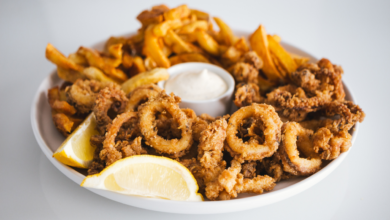Mango: Contains antioxidants and fiber, which can help with digestion.

Other names of this?
Mangoes are also known as the “king of fruits”.
How it is useful in PCOS/PCOD?
· Antioxidants: Mangoes are rich in antioxidants, which can help combat oxidative stress and inflammation.
· Fiber content: Mangoes contain both soluble and insoluble fiber, which can aid digestion and regulate blood sugar levels.
· Vitamin C: Mangoes are a good source of vitamin C, which can boost the immune system and aid in iron absorption.
· Potassium: Mangoes are rich in potassium, which is essential for maintaining healthy blood pressure.
Important nutrients of this useful in PCOS/PCOD?
· Vitamin C: Vitamin C is an antioxidant that can help protect cells from damage.
· Fiber: Mangoes are a good source of both soluble and insoluble fiber.
· Potassium: Potassium is essential for maintaining healthy blood pressure.
· Vitamin A: Vitamin A is important for vision and immune function.
How much to take in PCOS/PCOD?
There’s no specific dosage recommendation for mangoes in PCOS/PCOD. However, incorporating mangoes into your diet can be beneficial. Aim for 1-2 servings of mangoes per week.
How to take in PCOS/PCOD?
· Fresh: Mangoes can be eaten fresh as a snack or added to salads, smoothies, or yogurt.
· Dried: Dried mangoes can be a convenient snack option, but they are often high in sugar.
Side effects of taking too much in PCOS/PCOD?
While mangoes are generally safe, excessive consumption can lead to digestive issues, such as diarrhea or bloating, due to their high sugar content. It’s important to consume mangoes in moderation, especially for individuals with PCOS/PCOD who may have insulin resistance.





